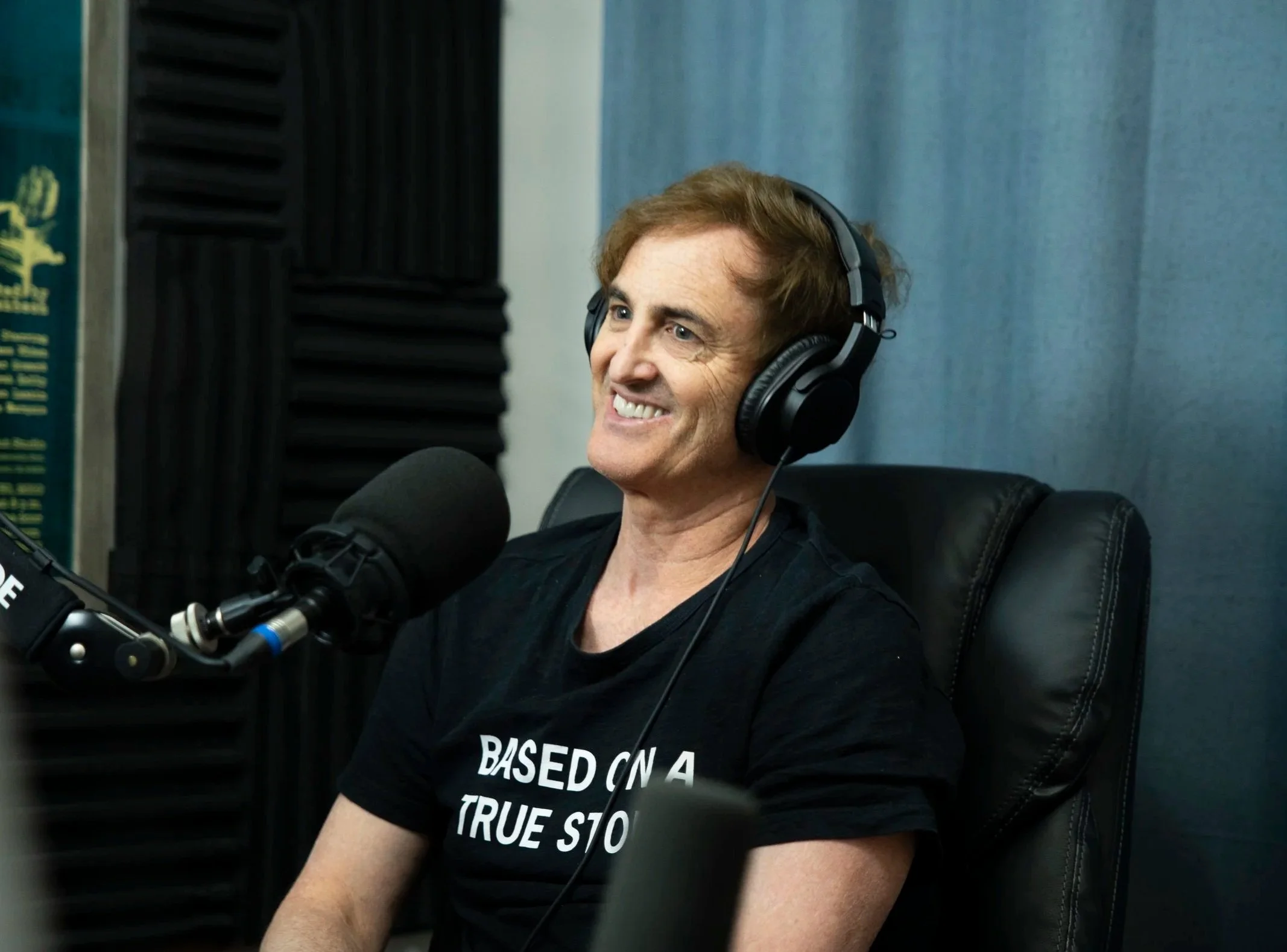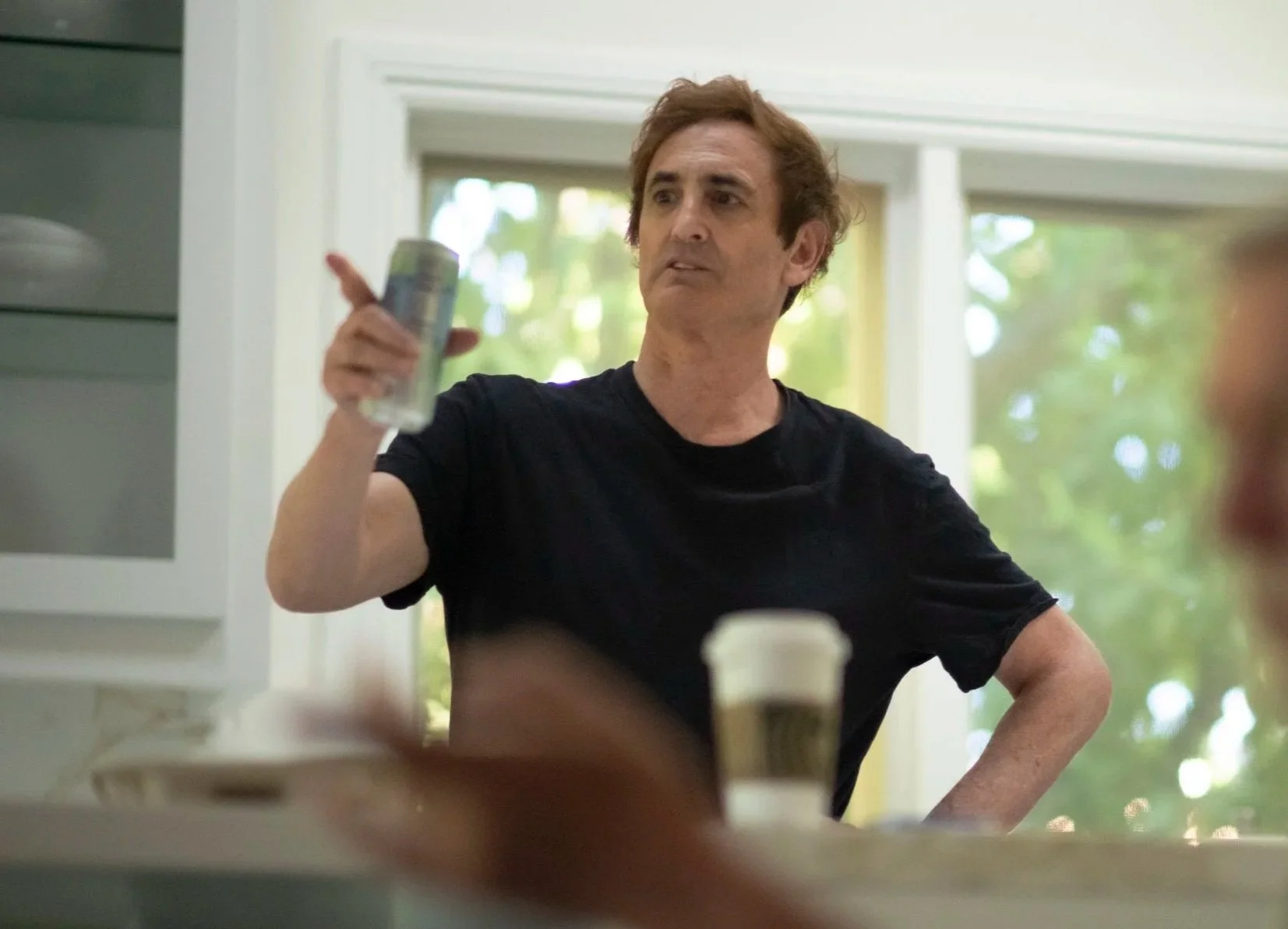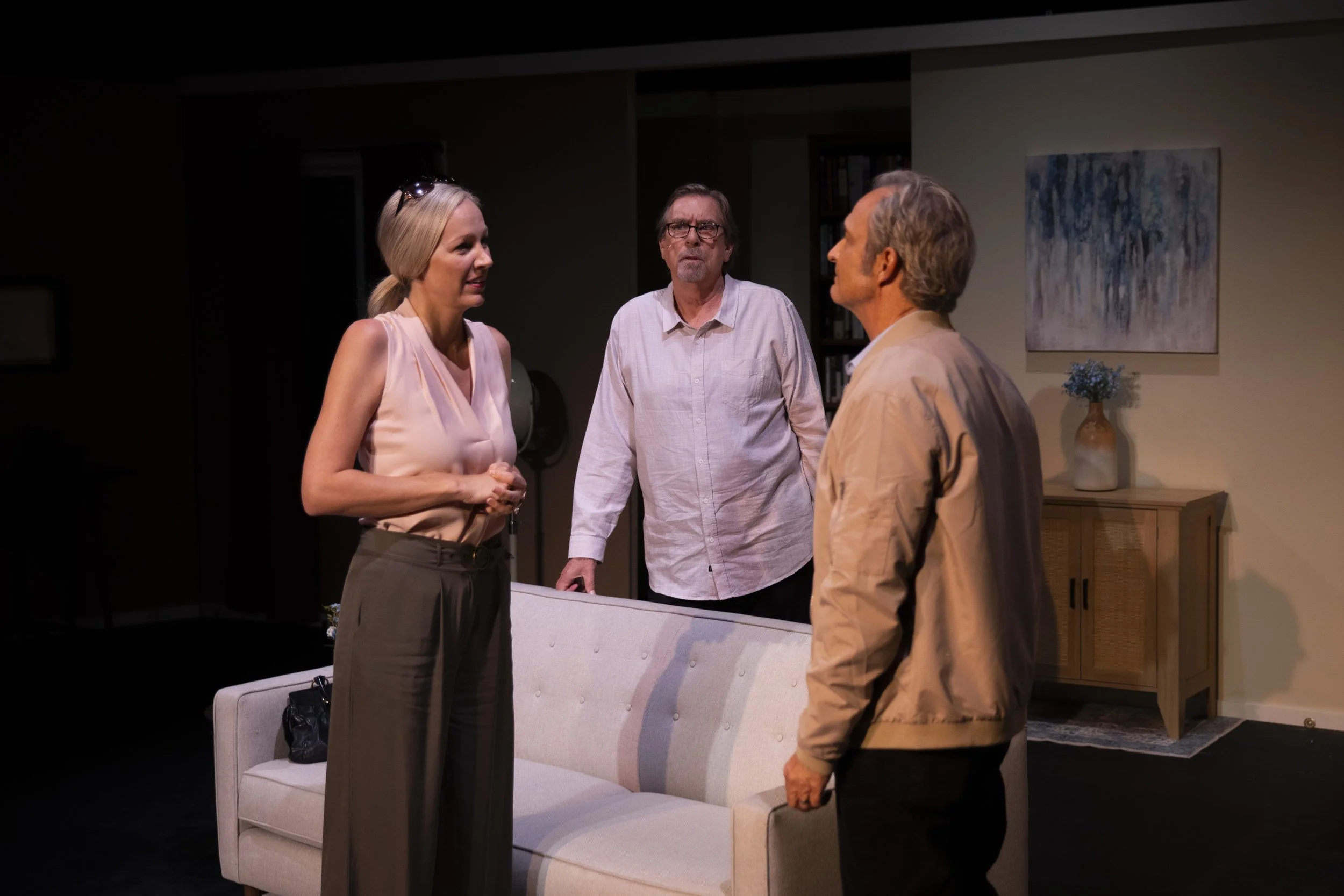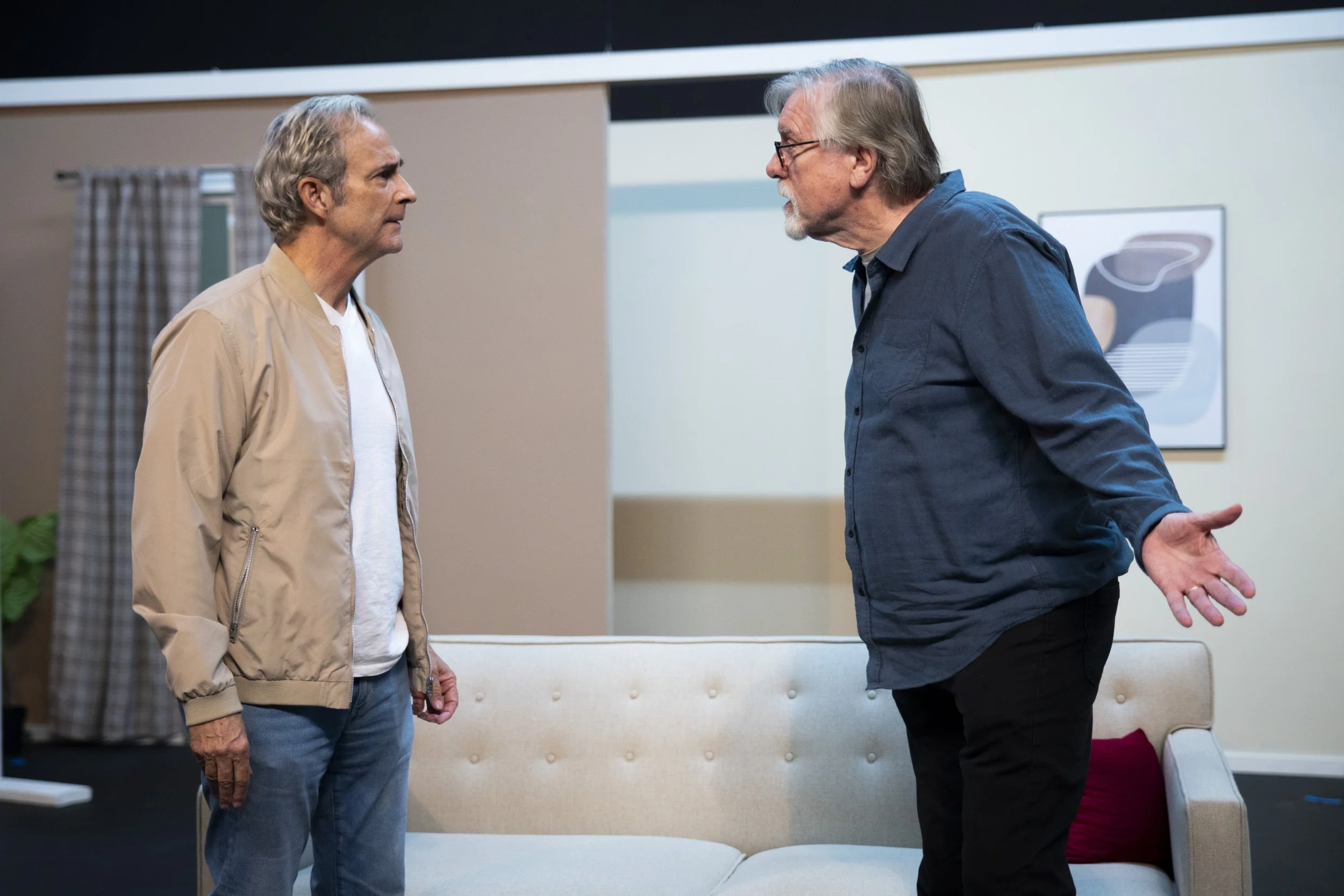Filmmaker and Playwright David Kohner Zuckerman on Art and Empathy
As both a filmmaker and a licensed psychotherapist, David Kohner Zuckerman has spent his career at the intersection of storytelling and the human psyche. Known for blending emotional honesty with narrative depth, he uses story as a way to explore truth, guilt, and love amid the complexities of trauma. In his latest stage work, Parallel Process, Zuckerman unites the analytical insight of psychology with the empathy of art to examine how people confront guilt, seek forgiveness, and rediscover meaning after loss.
A Los Angeles–based writer and director, Zuckerman’s screen credits include Chump Change, All I Want for Christmas, The Fourth Noble Truth, Caught in the Act, A Perfect Christmas, and Strictly Sexual — the latter holding the top spot as Hulu’s No. 1 feature film for eight consecutive years. He’s also the founder of VirtualPitchFest.com, an online platform that connects screenwriters directly with producers, executives, and representatives, opening doors for projects like Hot Seat, Black Friday, and Midnight in the Switchgrass.
With Parallel Process, Zuckerman steps into live theatre for the first time, turning his clinical understanding of trauma and moral injury into a work of raw emotional truth. Inspired by the untold stories of Vietnam veterans, the play examines the long shadow of war and the quiet struggle for forgiveness that follows it.
We sat down with Zuckerman to discuss the intersection of psychology and storytelling, the moral questions at the heart of Parallel Process, and why, for him, every story begins with one simple mantra: tell the truth.
Your career bridges two seemingly different worlds, filmmaking and psychotherapy. How did that dual path come about?
It’s funny, they seem like opposites – Hollywood and healing – but to me, they’re the same language: story. I’ve always been fascinated by why people do what they do, what drives them, what wounds they carry. Filmmaking allowed me to explore those questions creatively; psychotherapy let me explore them clinically. The paths just converged naturally over time.
In what ways has your work as a therapist influenced your storytelling, and vice versa?
Therapy gave me a much deeper understanding of character. When you sit with people in their most vulnerable moments, you learn how defense mechanisms, guilt, trauma, and love really operate. I use that in my writing all the time – especially when I’m shaping a character’s internal conflict. On the flip side, storytelling helps me as a therapist too; it reminds me that everyone is the protagonist of their own story, even when they feel lost in it.
How do you approach crafting characters who are wrestling with internal conflict or moral injury?
I start by asking: what is the truth they’re avoiding? Moral injury isn’t just about what someone did or saw – it’s about the fracture between who they were and who they became because of it. Once I find that rupture point, I build the story around it. I think audiences feel the most when a character’s external struggle mirrors an inner reckoning.
You’re also the founder of Virtual Pitch Fest. What sparked the idea?
I created VirtualPitchFest.com nearly two decades ago because I saw talented writers being ignored. There was no transparent way to connect them directly with producers and managers without needing an agent or some kind of miracle. I wanted to level that playing field – to give writers guaranteed access and guaranteed responses. It’s the only platform that still does that.
What’s one success story from VPF that stands out and reminds you why you started it?
There are many and several come to mind. One is Hot Seat – that was a big one for me because I love the movie! It was pitched through VPF by writing partners Leonard Langford and Collin Watts to a production company called Emmett/Furla Oasis. They said “yes” to the pitch and then produced the film, which Lionsgate ended up releasing.
Andy Greskoviak’s Black Friday also made its way from VPF to the big screen. Directed by Casey Tebo and starring Bruce Campbell, Michael Jai White, and Devon Sawa, it came together almost overnight. Andy said that after pitching through VPF, he and Casey were already swapping ideas that same evening, and within months, the movie was shooting.
Another standout is Alan Horsnail’s Midnight in the Switchgrass, a Lionsgate thriller starring Bruce Willis, Megan Fox, and Emile Hirsch. Alan told me that VPF gave him something every writer dreams of – the guarantee that their work will actually be read.
And finally, John Saunders’ Hunt Club was pitched through VPF to Jessica Mathis of Titan Global Entertainment, who optioned the script and produced it with Mena Suvari, Mickey Rourke, and Casper Van Dien. Jessica later said, “If it wasn’t for VPF, we would have never known about the project.”
All of these remind me why I started VPF, to create direct access between great writers and the people who can bring their stories to life.
Is there a personal mantra or philosophy that guides your work, both in therapy and in film?
“Tell the truth.” That’s really the through-line for me. Whether I’m in a therapy session or a rehearsal room, I believe healing and great art both start with honesty. The truth might hurt at first, but it’s the only thing that transforms.
Parallel Process deals with trauma, war, and memory. What kind of emotional or research preparation did it require?
The play was built on many conversations with Vietnam veterans – real men who opened up about things they’d never said aloud. I felt a huge responsibility to get it right. So the preparation wasn’t just research – it was bearing witness. I wanted to capture the emotional aftermath of war, not just the historical facts of it.
How have audiences responded to the play? Have there been any reactions that really moved you?
The response has been incredibly moving. Veterans have come up to me in tears, saying the play put words to things they’ve carried for decades. One Vietnam vet told me, “I felt seen for the first time.” That kind of reaction – that’s worth more than any review or award.
What conversations do you hope Parallel Process sparks, especially among viewers who may be dealing with unspoken pain?
I hope it opens up dialogue about moral injury – the wounds that come not from what was done to you, but from what you did, or couldn’t prevent. That applies beyond war; it’s universal. I want people to leave the theater with permission to talk about the things they’ve buried.
How do you see the entertainment industry evolving right now?
We’re in a major shift toward authenticity. Audiences are tired of formula. They want truth, rawness, humanity. Technology has democratized access, but the irony is – it’s made honesty even more valuable. The next wave of storytelling won’t be about spectacle; it’ll be about connection.
For aspiring screenwriters trying to break in today, what’s your most honest advice?
Don’t chase trends – write what you know. Write what’s meaningful to you. Write the story that only you can tell, the one that scares you to say out loud. And then be relentless about getting it out there. You don’t need permission; you just need persistence and craft.
What’s one creative risk you’re proud you took?
Writing and directing Parallel Process for the stage. I’d lived in the film world for years, and theater terrified me because there’s no hiding. But it turned out to be the most raw, immediate medium for what I wanted to say. Taking that risk reconnected me to why I became a storyteller in the first place.
What’s next for you? Are you working on more plays, films, or something unexpected?
Next up is a feature film called Pocket of Hope, based on the true story of Chad Gaines, who overcame an abusive childhood to become one of Ten Most Outstanding Young Americans. I’m also developing a documentary called 2 Weeks about the final stretch leading up to Parallel Process’s premiere. Beyond that, I’d like to keep exploring stories about redemption, reconciliation, and the search for meaning.
***
Yvon Lux is the editor of her Apple News channel covering lifestyle news and current events. When she’s not busy writing about impactful brands and standout products, she and her husband can be found snuggling with their emotionally needy, perpetually sleepy golden retriever, or she’s chipping away at her Juris Doctor. Connect with her on Instagram and subscribe to her Apple News channel.









